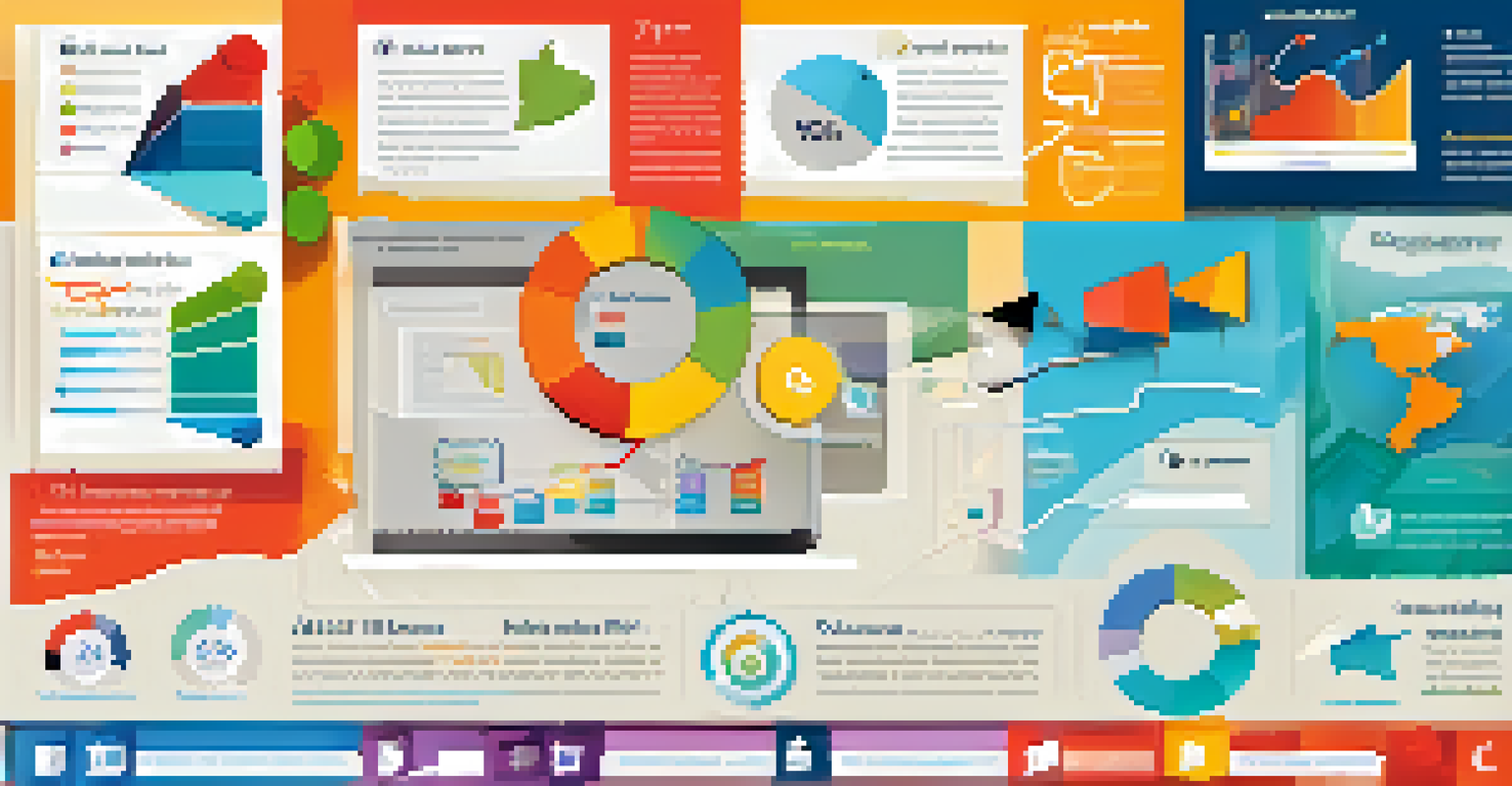Using Email Marketing to Boost Your Finance Brand

Understanding the Importance of Email Marketing for Finance Brands
Email marketing is a powerful tool for finance brands looking to connect with their audience. It allows you to build relationships, share valuable insights, and keep your customers informed. In a world where digital communication is key, email remains one of the most effective channels for engagement.
Email has an ability many channels don’t: creating valuable, personal touches—at scale.
For finance brands, trust is paramount. Regular email communication helps reinforce your expertise and reliability. Whether it’s sending market updates, financial tips, or service information, consistent emails keep you top of mind for clients and prospects alike.
Moreover, email marketing is cost-effective compared to traditional advertising. With the right strategy, you can reach thousands of potential clients with just a click, making it an efficient choice for budget-conscious finance brands.
Building a Targeted Email List for Maximum Impact
Having a targeted email list is essential for the success of your email marketing campaigns. It’s not just about the number of subscribers but the quality of those on your list. Focus on collecting emails from individuals genuinely interested in your financial services.

Utilize various methods to grow your list, such as offering free resources like e-books or webinars. These incentives can attract potential clients who are eager to learn more about finance, adding value while expanding your audience.
Email Builds Trust and Engagement
Regular email communication helps finance brands establish trust and maintain strong relationships with clients.
Don’t forget to segment your list based on interests or demographics. This way, you can tailor your messages, ensuring that each recipient receives content relevant to their financial needs, which can significantly increase engagement and conversion rates.
Crafting Compelling Email Content That Converts
Creating engaging email content is crucial for capturing your audience's attention and driving action. Start with a catchy subject line that piques interest, as it’s the first thing recipients see. Make it relevant to their financial concerns or goals to encourage them to open the email.
The key to successful email marketing is to understand your audience and build a relationship with them.
Once they click through, the content should provide value. Share insights, tips, or updates that resonate with your audience’s financial journey. Using relatable anecdotes or case studies can make your messages more engaging and relatable.
Always include a clear call to action (CTA) in your emails. Whether it’s prompting them to schedule a consultation, download a resource, or visit your website, a strong CTA guides your readers on what to do next and can improve your conversion rates.
Utilizing Automation for Streamlined Email Campaigns
Email automation is a game-changer for finance brands, allowing you to streamline your campaigns and save time. By setting up automated workflows, you can send targeted emails based on user behavior, such as new sign-ups or specific interactions with your content.
For example, consider a welcome series for new subscribers. Automating a series of emails that introduce your brand, highlight services, and share valuable content can significantly enhance the onboarding experience for potential clients.
Targeted Lists Boost Campaign Success
Focusing on a high-quality, targeted email list ensures that your messages reach individuals genuinely interested in your financial services.
Automation also enables you to maintain regular contact without constant manual effort. This consistency helps in nurturing leads and keeping your audience engaged over time, ultimately leading to higher conversion rates.
Analyzing Email Performance to Improve Future Campaigns
To ensure your email marketing strategies are effective, it’s essential to analyze performance metrics regularly. Key metrics to focus on include open rates, click-through rates, and conversion rates. These indicators can provide valuable insights into how your audience is engaging with your content.
For instance, if you notice a low open rate, it may indicate that your subject lines need improvement. Conversely, a high open rate but low click-through rate suggests that while your subject line is catchy, the content may not resonate as well with your audience.
Use A/B testing to experiment with different elements, such as subject lines, content formats, and CTAs. This ongoing analysis and adjustment will help you refine your email marketing strategy and better meet the needs of your audience.
Personalizing Emails to Enhance Customer Relationships
Personalization is key in email marketing, especially for finance brands where trust and relationships matter. By addressing recipients by name and tailoring content to their specific financial interests, you can create a more engaging experience.
Utilizing data from your email list can help you understand your audience's preferences. For example, if a segment of your audience frequently clicks on investment-related content, consider sending them more tailored emails focused on investment strategies and market trends.
Personalization Enhances Customer Bonds
Tailoring email content to individual preferences fosters engagement and strengthens customer loyalty.
Personalized emails can lead to increased engagement and loyalty, as clients feel valued and understood. This approach not only improves your open and click rates but also fosters a sense of connection with your brand.
Maintaining Compliance with Email Marketing Regulations
In the finance sector, adhering to email marketing regulations is crucial to maintaining your brand's integrity and trustworthiness. Familiarize yourself with laws such as the CAN-SPAM Act and GDPR to ensure your campaigns are compliant.
Always obtain explicit consent before sending emails. This not only protects your brand but also helps build a more engaged email list. Including an easy opt-out option in your emails is also essential, as it demonstrates respect for your audience's preferences.

Staying informed about regulatory changes can help you avoid pitfalls while ensuring that your email marketing practices remain ethical and effective. Compliance is not just about following the rules; it’s about building trust with your audience.